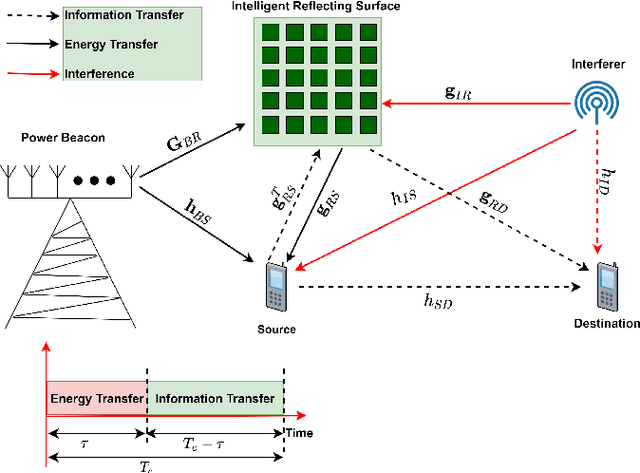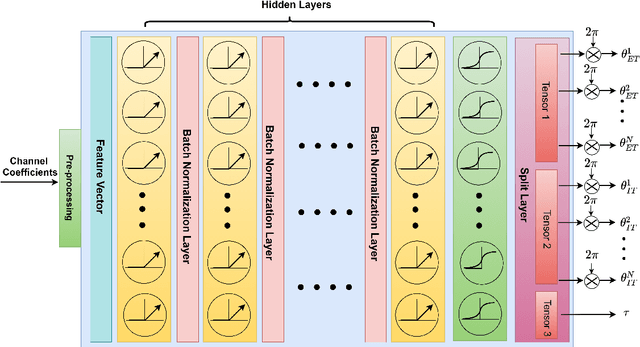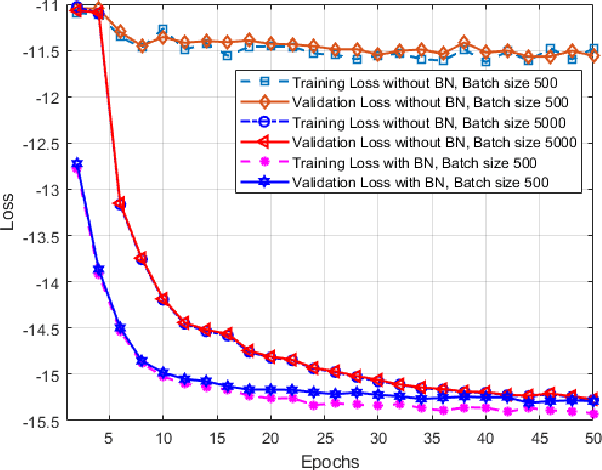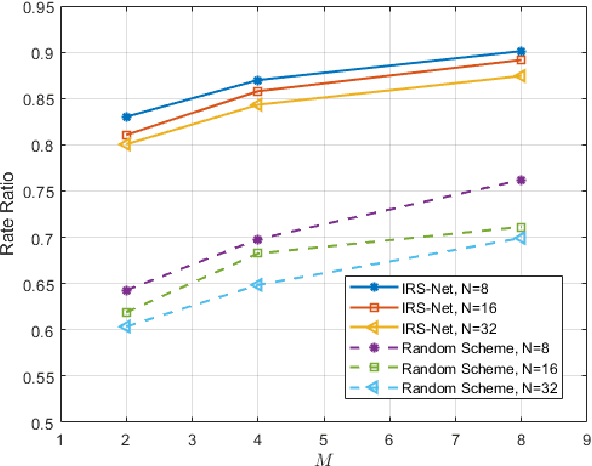Mahboob ur Rahman
Throughput maximization of an IRS-assisted wireless powered network with interference: A deep unsupervised learning approach
Aug 05, 2021



Abstract:In this paper, we consider an intelligent reflecting surface (IRS)-assisted wireless powered communication network (WPCN) in which a multi antenna power beacon (PB) sends a dedicated energy signal to a wireless powered source. The source first harvests energy and then utilizing this harvested energy, it sends an information signal to destination where an external interference is also present. More specifically, we formulated an analytical problem in which objective is to maximize the throughput by jointly optimizing the energy harvesting (EH) time and IRS phase-shift matrices corresponding to both energy transfer and information transfer phases. The formulated optimization problem is high dimensional non-convex, thus a good quality solution can be obtained by invoking any evolutionary algorithm such as Genetic algorithm (GA). It is well-known that the performance of GA is generally remarkable, however it incurs a high computational complexity. Thus, GA is unable to solve the considered optimization problem within channel coherence time, which limits its practical use. To this end, we propose a deep unsupervised learning (DUL) based approach in which a neural network (NN) is trained very efficiently as time-consuming task of labeling a data set is not required. Numerical examples show that the proposed approach significantly reduces time complexity making it feasible for practical use with a small loss in achievable throughput as compared to the GA. Nevertheless, it is also shown through numerical results that this small loss in throughput can be reduced further either by increasing the number of antennas at the PB and/or decreasing the number of reflecting elements of the IRS.
 Add to Chrome
Add to Chrome Add to Firefox
Add to Firefox Add to Edge
Add to Edge